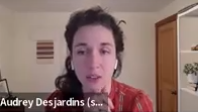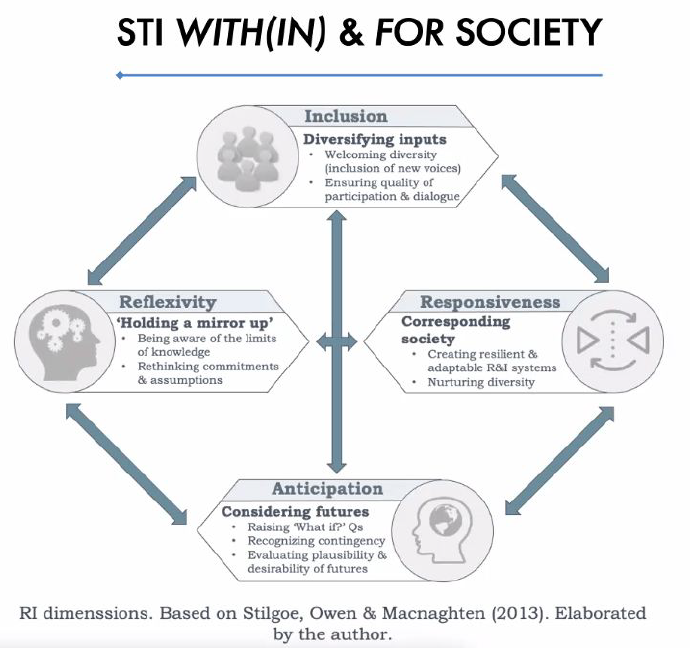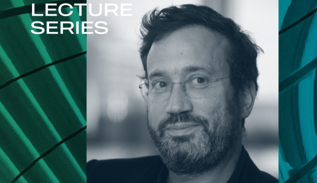term 2
future talks
audrey desjardins

• "I design to ask questions" with first person research methods
• “Rethink and how to create and represent data in your home”
• “Set a timeframe (but also be flexible)” / “You will were many hats. There might be tensions in values”
• "The intent is not to profess but rather to learn and change as the result of the conversation"
• "Continuously check in with yourself (and with others)”
laura forlano

• What it means to be a human, transhumanism and post humansim
• People (also disabled) should be involved in lives, for example with scientists to design their own clothing/tools.
• “The danger of intimate algorithm” / “The future is not a solution” / “Invisible algorithms, invisible politics”
• “I am alterted to the ways in which AI systems are intimately entangled with human life”
• “I am alarmed that disabled people continue to be experimental subjects for technological innocation”
She talked to us about dealing with her type 1 diabtes disease and how it changes her life, or how she has used her own body as a research object. She is connected to an AI system that checks her needs and awakens and prompts her to do things. This topic leads us to talk about the posthuman movement, where we become cyborgs with all these new appendages that people have to live with.
sergio uruena

• “Technological change and social change are mutually shaped and co-produced”
• “No-hierarchical, dialectic, dialogical and co-production Instead of linear, hierarchical, individualistic and unidirectional”
• “The hand-mill gives you society with the feudal lord; the steam-mill gives you society with the industrial capitalist” (Karl Marx)
• What means Responsabilisation (Know the effects/impact what you do and act with the people next to you, responsibility is like wielding your power ethic)
• “Responsible research and innovation is a transparent, interactive process by which societal actors and innovators become mutually responsive to each other with a view to the acceptability, sustainability and societal desirability of the innovation.” (Schomberg 2012)
Inclusion 1.Did you develop your own experience with(in) the network of actors in which and for which you are developing your project? To what extent and to which actors (human/non-human) do you feel responsible? Since Chiara showed us the community called “connecthort”, which includes urban gardening and other volunteering projects in Barcelona, I go almost every Saturday there to volunteer, help gardening, building nature bricks or different walls and also connecting to people with similar point of views and thoughts. This volunteering gets my every week out of my comfort zone, while waking up quiet early on a Saturday. Also next to the big amount of time we spent on our laptops for the projects its really refreshing and nice being 2-3 hours outside without any digital device. Talking about common projects, exchanging ideas and creating things together. Next to that I am talking more and more with people about my ideas and projects mostly around Barcelona.
2.Have you thought about expanding your community and from there, your own experience? Where do you set the boundaries of your experiential community? I would like to build my own community here, because I see the potential. I also like to deal a lot with the topic of sustainability, also because it is a fact that we will experience the consequences of global warming and we will learn to deal with it. In the last few years, the Swedish girl Greta Thunberg in particular has set things in motion, such as the "Fridays for future" movement. Here in Barcelona I talked to people about it and many didn't know about this movement, which surprised me a lot. Therefore, I see potential here and also the need to build a community with the topic of sustainability to bring this more to the people.
Reflexivity 1.What do I know and not know about my own project? What assumptions, interests, values... underpin my project and to what extent have I reflected on them? Even before the Masterbeschäftige me with the topics and through the Master could combine all my interests but currently not 100% how. But I have the feeling that I am on the right track, because I feel very comfortable with the topics and it makes me very fun.
2. Am I committed enough to my project and to the community with(in) and for which I am co-developing it? Now in my second semester I feel very comfortable with what I am doing and feel like I am going the right way. In the first semester I was a bit lost as I experienced a lot of new topics and was a bit overwhelmed with all the input. Also, it was very difficult for me to focus on one topic, but now it is going very well and I am full of confidence.
Responsiveness 1.In what sense am I corresponding to an interest, a need or an expectation of the social-technical system or community in which I feel involved? Lately, also by the pandemic I have the feeling that our society splits, by Fake News, distrust and the belief one knows it better than any experts step more and more differences of opinion on each other. I would like to build a community with the hope to bring people together again but also to connect them with nature, with reality. I have the feeling that we distance ourselves more and more and do not understand different processes anymore, as well as lose more and more the awareness of what is happening around us.
2.To what extent do I welcome and promote diversity and could I adapt my project if new needs or demands arise? How adaptable can my project be to possible changes? My theme is very open to change and other projects because it doesn't have any specific guidelines, which is honestly hard for me because I would like to have rules/regulations. But also in this master I am learning to deal with more open conceptual projects and to approach them with more patience.
Ranticipation 1.Could my project be domesticated in other contexts / by other actors? what could be the future consequences? For me, equality and open communication are very important, with my project I want to try to address everyone, not exclude anyone and make it as accessible as possible for everyone to benefit from it.
2.What futures am I promoting and who might benefit or be disadvantaged? How desirable are the futures I am promoting with my project, and for whom? I think that my projects can inspire us to live more consciously and to trust each other more and to think collectively. Also I have the feeling that through our individual projects / life forms we understand less how important it is to stick together, as well as how important the preservation of biodiversity, as well as natural processes is for the "health" of all living microorganisms.
saul beaza

Saul, after showing us with pleasure his city L 'Hospitalet, told us about his inspiring projects. He has worked a lot on the theme of body transformation, as well as identity. From masks to facial recognition, he has lived out, as within the projects Does "DOES Control, the given identity 2020". This machine is a project that "consists of a series of wireless electrical stimulators and sensors that, once attached to the body, can be controlled by various software to perform predetermined or real-time movements and behaviors. As an established dogma, we usually say that in our society we are controlled by our phones, social networks, emails, whatsapps, calls, etc. Also he spoke about the problem that black people have while using face identity and also people with deformed faces.
eyal weizman

• Director of Forensic Architecture and Professor of Spatial and Visual Cultures at Goldsmiths, University of London
• Discuss the fundamental notion of architecture as political intervention and explore its approach to collaboration, development of new open-source investigative techniques, and expansion into new areas of inquiry in response to an evolving digital landscape
• The power that architects or designers could have to detect and analyse events if they manage to overlap physical and spatial conditions with digital data and information
Term 2